Preventive Care
Preventive dental care is important throughout your life, no matter your age. By practicing good oral hygiene at home and scheduling regular checkups with your dentist, you can help keep your smile bright and healthy for many years to come. Here are a few simple ways that you can prevent the build-up of plaque and cavities:
- Brush your teeth at least twice a day with a soft-bristled toothbrush. Use fluoride toothpaste to remove food particles and plaque from the tooth surfaces. Also be sure to brush the top surface of your tongue; this will remove any extra plaque-causing food particles, and help keep your breath fresh!
Clean between your teeth by flossing at least once a day. You can also use a mouthwash to help kill bacteria and freshen your breath. Decay-causing bacteria can linger between teeth where toothbrush bristles can't reach. Floss and mouthwash will help remove plaque and food particles from between the teeth and under the gum line.
-
Brushing Instructions
-
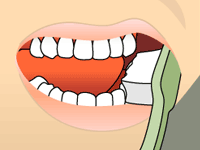
Brushing: Step 1
Place your toothbrush at a 45-degree angle to your gum.
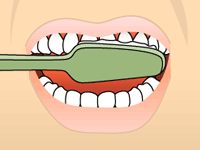
Brushing: Step 2
Brush gently in a circular motion.
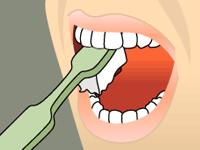
Brushing: Step 3
Brush the outer, inner, and chewing surfaces of each tooth.
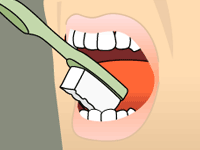
Brushing: Step 4
Use the tip of your brush for the inner surface of your front teeth.
Flossing Instructions
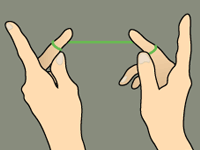
Flossing: Step 1
Wind about 18 inches of floss around your fingers as shown. Most of it should be wrapped around one finger, and the other finger takes it up as the floss is used.
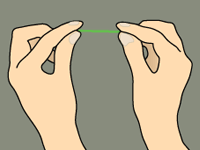
Flossing: Step 2
Use your thumbs and forefingers to guide about one inch of floss between your teeth.
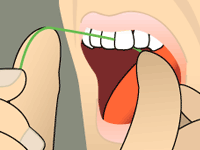
Flossing: Step 3
Holding the floss tightly, gently saw it between your teeth. Then curve the floss into a C-shape against one tooth and gently slide it beneath your gums.
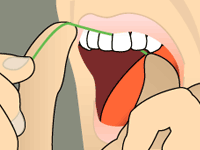
Flossing: Step 4
Slide the floss up and down, repeating for each tooth.
-
Oral Rinsing
Use antimicrobial mouthwash to fight bacteria. If you're looking for a mouthwash that actually cleans your mouth, choose one with antimicrobial agents that reduce plaque and help fight gingivitis by killing harmful bacteria. Look for an over-the-counter mouthwash in the toothpaste aisle that is labeled as being antibacterial. Using an antibacterial mouthwash will help you tackle the root of bad breath, which is often caused by bacteria. You might also want to try an antiseptic mouthwash. This will kill bacteria as well as fungi, protozoa, and viruses. However, antiseptic mouthwash contains a lot of alcohol, which can dry out your mouth and cause irritation. There are more varieties now available that are alcohol free.
Use fluoride mouthwash to prevent cavities. If your goal is specifically to keep your teeth from getting cavities, you might want to choose a mouthwash that contains fluoride. It helps to reduce the lesions that lead to cavity formation. Fluoride is in most commercially available toothpaste, and it is also added to the water in many cities, but you might want to consider using extra fluoride if your teeth are particularly prone to cavities. While fluoride does help to reduce cavities, some scientists posit that it can be toxic to the body and the environment. Research the pros and cons of using fluoride before you decide to make it a part of your daily routine.
- Eat a balanced diet, and try to avoid extra-sugary treats. Nutritious foods such as raw vegetables, plain yogurt, cheese, or fruit can help keep your smile healthy.
- Remember to schedule regular checkups with your dentist every six months for a professional teeth cleaning.
- Ask your dentist about dental sealants, protective plastic coatings that can be applied to the chewing surfaces of the back teeth where decay often starts.
- If you play sports, be sure to ask your dentist about special mouthguards designed to protect your smile.
If it's been six months since your last dental checkup, then it's time to contact our practice and schedule your next appointment!




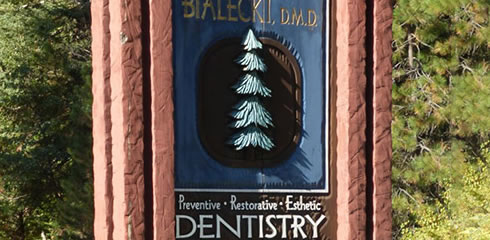
 402 S Grass Valley Rd
402 S Grass Valley Rd